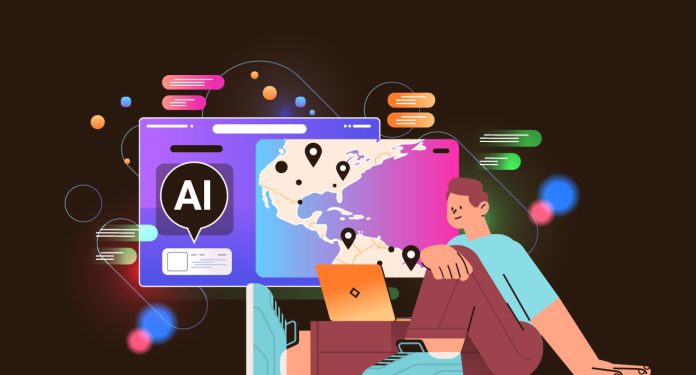Conversational and agentic AI are transforming travel planning from scattered apps to a single, intelligent interface for personalized, seamless trips.
Travel planning has long been a tangled web of disconnected platforms, multiple apps, and endless browser tabs. Travelers juggle flight booking sites, hotel platforms, restaurant reviews, and activity planners, often losing momentum between each touchpoint. This fragmented experience creates friction for travelers and makes it harder for travel brands to build and maintain engagement.
Now, conversational and agentic AI systems seem poised to resolve those challenges. Achieved not by adding new apps or features, but through their ability to connect every stage of the planning process into a centralized, data-driven interaction that adapts in real time to travelers’ needs.
The end of travel planning overload
As travelers demand more streamlined booking experiences, the next competitive edge won’t come from more apps but AI that integrates traditionally siloed functions into one continuous flow. Rather than forcing users to navigate between separate platforms, AI-powered systems handle complex requests through natural conversation.
This shift is about more than convenience—it’s a reimagining of travel planning itself, and by extension, how travel brands interact with customers. Just as AI tools like ChatGPT and Google Gemini have changed how many people gather information and find answers to questions, AI is transforming travel planning from a scavenger hunt into a guided discovery tour.
That means that instead of competing for app downloads, companies must focus on creating AI experiences that understand context, remember preferences, and execute complex arrangements through a single intelligent interface. Brands that master this unified approach will capture customer loyalty by becoming the single point of contact for all travel needs.
Consumer behavior has stabilized around digital-first expectations, with travelers expecting technology to work intuitively. Companies that continue to rely on fragmented experiences risk losing customers to competitors offering more AI-powered end-to-end travel solutions.
Data-rich interactions drive smarter recommendations
The power of AI lies in its ability to turn data into value. By analyzing deep customer data—preferences, past behavior, and real-time context—AI systems can deliver smarter, highly personalized recommendations and decisions that drive both conversion and loyalty. Imagine a booking platform that knows, based on a variety of historical and profile data combined with browsing cues, that a traveler is planning a summer seaside vacation, and can automatically recommend a minivan rental and hotel suite large enough to accommodate their family. Wouldn’t that traveler be more likely to convert than if they had received a generic offer?
Traditional platforms collect vast amounts of data but often fail to connect insights across touchpoints. A user might search for flights on one platform, book hotels on another, and research activities on a third, with each interaction trapped in silos. AI-powered systems change this by creating comprehensive customer profiles that inform every interaction.
This data integration enables AI to make intelligent trade-offs impossible through conventional interfaces. For example, AI might recommend a slightly more expensive flight because it knows the traveler values shorter layovers or suggest a hotel in a different neighborhood based on known dining preferences. Each interaction makes the system smarter, creating a flywheel effect that improves the system’s ability to serve the customer and strengthens loyalty over time.
From conversational search to autonomous trip management
If conversational AI helps travelers search and plan trips using natural language, such as “Find me a flight to Tokyo next month with a window seat and a hotel nearby with a gym,” then agentic AI takes it further by acting on the traveler’s behalf. It can rebook flights if there are delays, suggest restaurants based on dietary needs, or adjust itineraries in real time. This shift turns AI from a simple search interface into an autonomous travel partner that makes decisions and handles logistics without needing user input.
Travelers are primed for this next evolution. According to Statista, 40% of global travelers have already experimented with AI trip-planning tools, while 12% use AI for both planning and during the vacation. But what does this mean for established travel players? If a single AI agent handles an entire trip-planning experience, do consumers still turn to booking platforms or rely on TripAdvisor reviews?
This means AI’s role is no longer just in searches and suggestions. It’s in booking, coordinating, and problem-solving, creating a travel experience where planning becomes collaborative rather than transactional. AI becomes the traveler’s co-pilot, handling logistics and monitoring for changes so travelers can focus on the experience, not the mundane, time-consuming details.
Legacy brands face new competitive pressure
As big tech giants and AI-first disruptors move deeper into travel, legacy brands face new pressure to strengthen their AI capabilities or risk losing relevance. Companies like Google bring sophisticated technology platforms, mountains of user data, and broad user familiarity that can quickly challenge established travel brands’ market positions.
Travel brands still have an advantage based on their customer relationships, but this competitive threat requires travel companies to rethink their technology strategies. With this shift accelerating, success depends on travel companies effectively integrating data across touchpoints, investing in scalable AI systems to handle complex scenarios, or partnering strategically where internal capabilities fall short. This transition might seem daunting, but it can start simply, with an audit of existing systems and data. But the important part is to get started—the big tech challenge is not going to abate.
The challenge is particularly acute for established travel brands with legacy systems, fragmented data architectures, and aging tech stacks. These companies must navigate a tightrope, maintaining existing operations while modernizing infrastructure to support new AI capabilities, often requiring large technology investments.
The clock is ticking. As AI capabilities advance rapidly and customer expectations shift toward more intelligent, autonomous travel experiences, travel companies must move quickly to assess their AI readiness and develop comprehensive strategies to compete effectively in an AI-driven travel landscape.










